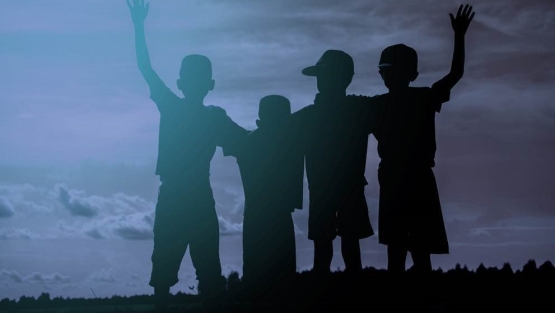Went and dug a little deeper and it seems that for high-income nations, this trend of more women than men graduating in universities (as well as outperforming in school) has been going on for multiple decades now.
Apart of me wants to think its just right-wing hysteria because this was brought to my attention by some random podcast clip using this example as somehow proof that patriarchy doesn’t exist lol. Some articles I read did mention how other factors (particularly class and race) was a higher determinant of school/university success.
And I particularly do not like biological explanations anyways (too essentialist to my taste, but I can’t say for sure). I forgot which article in particular but it did argue it’s because men used to be able find jobs in more traditional blue-collar industries, leading to this present day discrepancy.
What do you all think?


I really don’t know, it’s a very strange phenomenon. I think it could be both what you describe as “boys will be boys” culture and a general culture of despair that I’ve seen growing around a lot of especially online communities with young men. A lot of young men feel completely lost in life, not knowing at all what to do, don’t have a plan, don’t know what to plan, and are scared of the future. I used to be one of them and kind of still am. Every young guy I know is like this except for a rare few that seem to have themselves figured out, or atleast can present that way.
It’s very hard to get motivated when you feel lost in life. When I was lost in high school, it was very hard to try for good grades, because I had no plans for the future, I had no idea what I wanted to do, if I wanted to go to college, what I’d do in college etc. It wasn’t really because I felt like id be okay, more the exact opposite, I was scared, very scared of the future. I know a lot of young men feel this way. Add to this the “boys will be boys” culture, no one really pays any mind to it, they see a boy struggling in school and think “ah that’s just normal he’s just a young man growing up” and they don’t think about asking to help or intervening in any way.
It’s more concerning because the far- right preys on young men like this. They know exactly how to wheel them in, and funnel them into mindsets blaming women and minorities for how they feel. Guys like Jordan Peterson have seen a meteoric rise in popularity for this exact reason, they try to speak to them.
As for why they feel bad, I couldn’t put a finger on anything specific, even in my own experiences. Things just looked bleak, nothing seemed certain, and nothing looked like a good opportunity. I guess you could say the collapsing weight of neoliberal capitalism has been hitting young men so hard because they used to be at the top of the pecking order, and the culture around them always made it seem like everything would work out for them, and now it isn’t at all. But I don’t know, just brainstorming.
You’re describing me, in many ways.
It is tough. I was lucky to have a few good role models at certain key moments.
I’d maybe make two observations.
First, people like Peterson are not necessarily as popular as they appear, but they get boosted by algorithms and funded by the bourgeois partly because they funnel people away from radicalism. (Well, left wing radicalism. I’d argue that what Peterson, especially, is peddling, is a right wing radicalism.)
Second, I think you’re right about that feeling of ‘it seem like everything would work out for them, and now it isn’t at all’ (emphasis added). But there are many in the previous generation for whom things did not work out. They went through the same struggles that our generation(s) are going / went through. This doesn’t change the feeling for young people, but it may help us explain it.
If previous generations of boys went through the same thing, or a similar thing, why is it that we think it’s only a modern problem? At some level I would think that this feeling comes from attempts to divide the workers in grounds of age.
This doesn’t change the stats, by the way, but it may require us to look for a different kind of answer than the one that we’re ‘expected’ to find. By this I mean, we might now ask, if working class boys had received the same level of education as do working class boys today, would we have seen similar statistics in the past as we see today?
I also am just thinking through the issues. I have no answers.
If the stats would be similar for boys in previous generations, maybe we’re looking, as you say, at the weight of maybe not neoliberal capitalism, but various forms of patriarchal capitalism. This gendered system sets up all sorts of unattainable goals and maybe some boys realise this but cannot articulate what’s going on or their reaction to it?